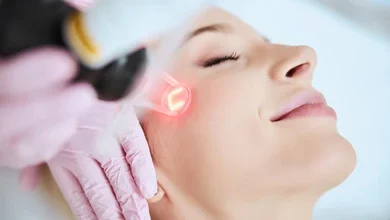Gluta White Cream: Unveiling the Claims and Potential Concerns

Gluta White Cream has become a popular choice for those seeking a brighter, more even skin tone. Marketed for its skin lightening properties, it promises to address dark spots, hyperpigmentation, and achieve a youthful glow. But before diving into this jar of potential radiance, let’s delve deeper into the claims, ingredients, and potential concerns surrounding Gluta White Cream.
What is Gluta White Cream?
Gluta White Cream is a skincare product formulated with glutathione, an antioxidant naturally present in the body. It often contains additional ingredients like collagen,kojic acid, and arbutin, all targeting various aspects of skin tone and texture.
Claimed Benefits:
- Skin Lightening: Gluta White Cream’s primary claim is to lighten and brighten the skin. Glutathione may help reduce melanin production, the pigment responsible for skin color.
- Reduced Hyperpigmentation: The cream is advertised to address dark spots, uneven skin tone, and hyperpigmentation caused by sun damage, acne scars, or other factors.
- Improved Skin Texture: Some formulations contain collagen, which can promote skin elasticity and firmness.
- Antioxidant Benefits: Glutathione’s antioxidant properties may help fight free radical damage, potentially leading to a more youthful appearance.
Potential Concerns:
- Uneven Results: The effectiveness of Gluta White Cream can vary greatly depending on individual skin type, genetics, and the severity of hyperpigmentation.
- Mercury Content: Some Gluta White Creams, particularly those without proper regulations, may contain mercury. This is a dangerous ingredient that can lead to skin irritation, mercury poisoning, and long-term health problems. It’s crucial to choose from reputable brands that guarantee mercury-free formulations.
- Skin Irritation: Certain ingredients, particularly kojic acid, can cause irritation, dryness, or redness in some individuals. Patch testing on a small area of your arm before applying to your face is essential.
- Sun Sensitivity: While some Gluta White Creams lighten the skin, they may also increase sun sensitivity. Consistent sunscreen use with SPF 30 or higher is crucial to prevent further hyperpigmentation and sun damage.
- Limited Research: Extensive research on the long-term safety and efficacy of Gluta White Cream, particularly in combination with other ingredients, is limited.
Alternatives to Consider:
- Vitamin C Serums: Vitamin C serums are a well-researched option for brightening the skin and reducing hyperpigmentation. They work by inhibiting melanin production and promoting collagen synthesis.
- Hydroquinone: A prescription medication often used by dermatologists to address hyperpigmentation. However, it can also cause irritation and requires close monitoring by a doctor.
- Azelaic Acid: Another prescription option that can lighten dark spots and improve overall skin tone. It’s generally well-tolerated but may cause mild dryness or stinging.
Choosing the Right Gluta White Cream (if you choose to):
- Look for Reputable Brands: Opt for brands with a history of safety and quality control.
- Check for Ingredient Transparency: Ensure the label clearly lists all ingredients and avoid any containing mercury.
- Consider Your Skin Type: Choose a formulation suitable for your skin type (sensitive, oily, dry, etc.).
- Patch Test Before Use: Apply a small amount to your inner arm and wait 24 hours to check for any irritation.
- Consult a Dermatologist: If you have any pre-existing skin conditions or concerns, consult a dermatologist before using Gluta White Cream.
The Allure of Online Shopping:
Gluta White Cream’s popularity is partly fueled by its easy accessibility through online shopping platforms. However, exercising caution is essential. Be wary of unrealistically priced products or those with limited ingredient information. Stick to reputable online retailers with clear return policies and verified customer reviews. Remember, the safety and efficacy of your chosen cream should be your top priority.
Conclusion:
Gluta White Cream can be a tempting option for achieving a brighter complexion. However, it’s crucial to weigh the potential benefits against the concerns. Understanding the ingredients, potential side effects, and alternative solutions empowers you to make informed choices for your skin health. Remember, consistency with a gentle skincare routine, including sun protection, is key to achieving and maintaining a healthy, radiant complexion.
Additional Considerations:
- Natural Alternatives: Explore natural ingredients like licorice root extract or niacinamide that may offer some skin lightening benefits with a lower risk of irritation.
- Importance of Consultation: A dermatologist can assess your individual needs and recommend the most effective and safe approach to address your specific skin concerns.
- Focus on Overall Skin Health: Remember, a healthy glow comes from within. Prioritize a balanced diet, adequate sleep, and managing stress for optimal skin health.
By considering all the angles, you can decide if Gluta White Cream is the right choice for your unique skin journey.



